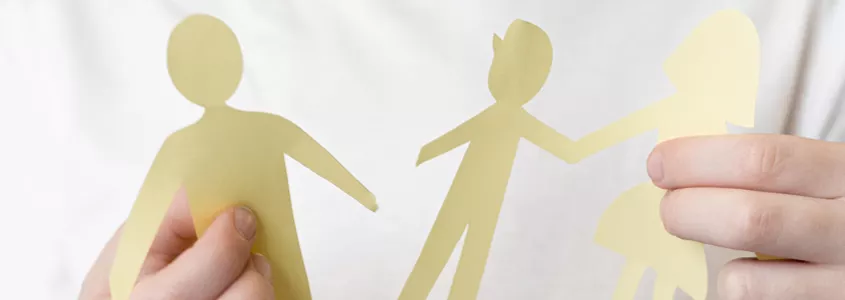
Table of contents
Taking custody of a child away from a parent is probably the most important aspect of any separation or divorce agreement. This is mainly because judges always give priority to the welfare of the children.
However, the person who holds it can lose it if a series of circumstances arise that lead to the modification of the agreement. But what exactly are these circumstances? We are going to analyse them in this article.
Difference between custody and parental authority

Let us briefly differentiate between the two concepts, as parents often confuse them.
Parental authority refers to the duties and rights that parents have in relation to their minor children. Therefore, it focuses on the paternal-filial relationship and is personal, non-transferable and unwaivable. In fact, it can only be lost in extraordinary cases.
Custody, on the other hand, focuses on the daily cohabitation of the children. In this sense, it can be held by only one of them (single-parent custody) or both (joint custody). In both cases, for the reasons mentioned below, one of the parents may lose custody.
By this we mean that joint custody can become single-parent custody if the parent does not fulfil his or her duties. Similarly, a single-parent custody can be transferred to the other parent or become joint custody if the necessary circumstances are met.
Grounds on which custody can be taken away from a parent
The grounds for removing custody from a parent are the same. In particular, the following are the most common ones:
- Maintaining a pace of life that is incompatible with the maintenance of family life. We refer, fundamentally, to behaviour that may be harmful to children (for example, drinking alcohol regularly and excessively in front of them) and to disorderly lifestyles (leaving children alone at night to go out partying, going on trips without taking them or leaving them unattended, etc.).
- Failure to take proper care of the children. The custodial parent is responsible for ensuring that the children receive sufficient medical care, follow good eating habits and maintain proper standards of hygiene.
- This also includes keeping the children safe. For example, by fitting them in the car with appropriate child restraint systems.
- Admission to prison, a drug rehabilitation centre or a mental institution. Undoubtedly, these are the simplest cases to obtain a change in the custody of the children, as during the time the custodial parent cannot continue to live with them.
- Addictions that affect the physical and mental stability of the children. Such as alcoholism or any other drug addiction.
- History of violence or sexual abuse of the child. This is one of the most serious grounds for losing custody of a child. In fact, it is one of the few that can also lead to the loss of parental authority.
- Transfer of residence. Judges, as we said before, give priority to the welfare and stability of children. For this reason, when they are going to experience a change of residence that obliges them to change school and social environment, they may consider granting custody to the other parent provided that they request it.
- Failure to respect the visiting arrangements. Repetition of this behaviour by the custodial parent can lead not only to sanctions but also to the withdrawal of custody. It is very important for the non-custodial parent to report this whenever it occurs so that he/she can have clear evidence of how he/she is being denied his/her right.
The non-custodial parent can apply for a modification of custody on the grounds that the children suffer from parental alienation syndrome (SAP). This generally occurs when the custodial parent uses the children to harm his or her ex-partner.
This mental disorder resulting from the emotional instrumentalisation of the children can lead to the loss of custody. However, it usually requires reports from child psychologists and a long and complex process to prove it.
Is the removal of custody irreversible?
You already know for what reasons a child can be removed from your custody. So now it is time to explain whether the decision, once taken by the judge, can be reversed.
The answer is yes in most cases. In fact, unless the withdrawal is based on physical, psychological or sexual aggression against the child, the parent who loses custody can request its restitution in the future. However, it is an indispensable condition that the circumstances that led to the removal have disappeared.
Frequently asked questions on the removal of custody of a child from a parent
We are going to finish by resolving some very common doubts among fathers and mothers regarding the possible loss of custody of their children:
- Can they take my child away from me if I don't have a home? No. Mainly because in the regulatory agreement it is determined that the use of the family home belongs to the children and, therefore, to the custodial parent.
- Can they take my child away from me if I don't have a job? No. Neither. This is only possible if the custodial parent is unable to take proper care of the children.
- Can one parent take the child away from the other parent? No. This decision can only be made by a judge.
We hope we have solved all your doubts related to the possibility of losing custody of a child. However, if you need personalised advice to avoid losing custody or to obtain it, do not hesitate to contact a family lawyer.

"Anywhere in Spain"
With our online appointment system you will have immediate advice without the need for face-to-face visits or travel.
One of our lawyers specialized in your area of interest will contact you to formalize an appointment and make your consultation by video call.
